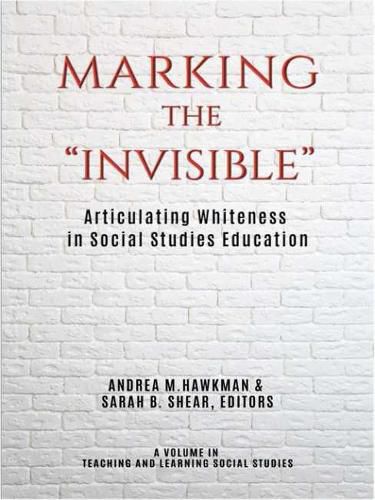Readings Newsletter
Become a Readings Member to make your shopping experience even easier.
Sign in or sign up for free!
You’re not far away from qualifying for FREE standard shipping within Australia
You’ve qualified for FREE standard shipping within Australia
The cart is loading…






This title is printed to order. This book may have been self-published. If so, we cannot guarantee the quality of the content. In the main most books will have gone through the editing process however some may not. We therefore suggest that you be aware of this before ordering this book. If in doubt check either the author or publisher’s details as we are unable to accept any returns unless they are faulty. Please contact us if you have any questions.
Substantial research has been put forth calling for the field of social studies education to engage in work dealing with the influence of race and racism within education and society (Branch, 2003; Chandler, 2015; Chandler & Hawley, 2017; Husband, 2010; King & Chandler, 2016; Ladson-Billings, 2003; Ooka Pang, Rivera & Gillette, 1998). Previous contributions have examined the presence and influence of race/ism within the field of social studies teaching and research (e.g. Chandler, 2015, Chandler & Hawley, 2017; Ladson- Billings, 2003; Woyshner & Bohan, 2012). In order to challenge the presence of racism within social studies, research must attend to the control that whiteness and white supremacy maintain within the field. This edited volume builds from these previous works to take on whiteness and white supremacy directly in social studies education. In Marking the Invisible , editors assemble original contributions from scholars working to expose whiteness and disrupt white supremacy in the field of social studies education. We argue for an articulation of whiteness within the field of social studies education in pursuit of directly challenging its influences on teaching, learning, and research. Across 27 chapters, authors call out the strategies deployed by white supremacy and acknowledge the depths by which it is used to control, manipulate, confine, and define identities, communities, citizenships, and historical narratives. This edited volume promotes the reshaping of social studies education to: support the histories, experiences, and lives of Students and Teachers of Color, challenge settler colonialism and color-evasiveness, develop racial literacy, and promote justice-oriented teaching and learning.
$9.00 standard shipping within Australia
FREE standard shipping within Australia for orders over $100.00
Express & International shipping calculated at checkout
This title is printed to order. This book may have been self-published. If so, we cannot guarantee the quality of the content. In the main most books will have gone through the editing process however some may not. We therefore suggest that you be aware of this before ordering this book. If in doubt check either the author or publisher’s details as we are unable to accept any returns unless they are faulty. Please contact us if you have any questions.
Substantial research has been put forth calling for the field of social studies education to engage in work dealing with the influence of race and racism within education and society (Branch, 2003; Chandler, 2015; Chandler & Hawley, 2017; Husband, 2010; King & Chandler, 2016; Ladson-Billings, 2003; Ooka Pang, Rivera & Gillette, 1998). Previous contributions have examined the presence and influence of race/ism within the field of social studies teaching and research (e.g. Chandler, 2015, Chandler & Hawley, 2017; Ladson- Billings, 2003; Woyshner & Bohan, 2012). In order to challenge the presence of racism within social studies, research must attend to the control that whiteness and white supremacy maintain within the field. This edited volume builds from these previous works to take on whiteness and white supremacy directly in social studies education. In Marking the Invisible , editors assemble original contributions from scholars working to expose whiteness and disrupt white supremacy in the field of social studies education. We argue for an articulation of whiteness within the field of social studies education in pursuit of directly challenging its influences on teaching, learning, and research. Across 27 chapters, authors call out the strategies deployed by white supremacy and acknowledge the depths by which it is used to control, manipulate, confine, and define identities, communities, citizenships, and historical narratives. This edited volume promotes the reshaping of social studies education to: support the histories, experiences, and lives of Students and Teachers of Color, challenge settler colonialism and color-evasiveness, develop racial literacy, and promote justice-oriented teaching and learning.